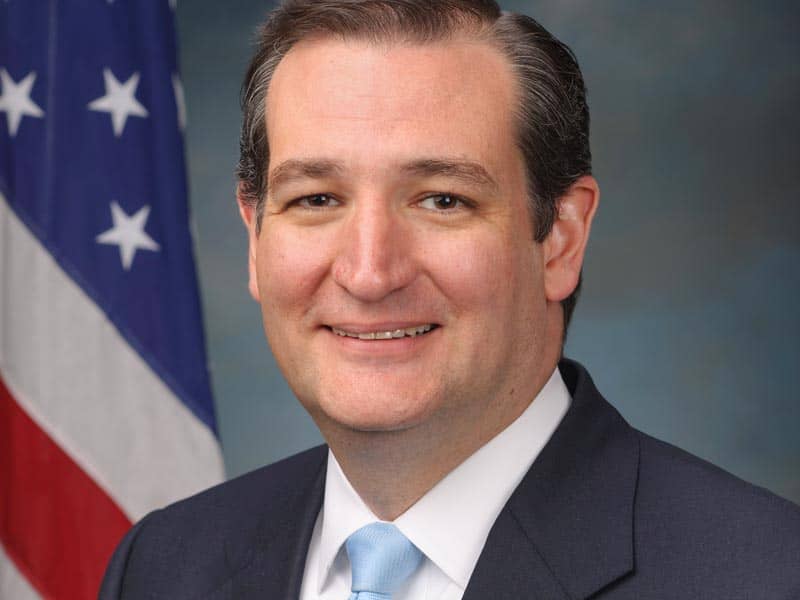Okay, I think I get the idea.
Republicans are very upset that Senate Democrats have held together enough to sideline three of President Bush's most hard-line conservative judicial nominees.
That unity anticipates similar steadfastness in the face of hard-line nominations to the Supreme Court if and when Bush gets the chance. And all that complaining about Democratic filibustering - whether justified or not - never caught on with voters.
But that's still no excuse for the ridiculous charges that Democrats are acting out of anti-Catholic bias or bigotry when opposing Alabama Attorney General William Pryor's nomination to the federal appeals bench, in part because of his views on abortion.
Last week Sen. Rick Santorum (R-Pa.) claimed, "What we are seeing, de facto, from members of the other side is a religious test."
Some even claim that the Democrats' opposition to Pryor for his hard-line position on abortion and other hot-button issues amounts to a violation of the ban on religious tests found in Article VI of the Constitution. As one fulminating right-wing commentator put it, "As with the Cavaliers who made Catholics publicly renounce the doctrine of transubstantiation, so now Senate Democrats insist that nominees renounce church teaching on abortion."
Frankly, some charges are so cynical, reckless and baseless that they shouldn't require refuting. But as long as Santorum & Co. are insisting, let's go over a couple of reasons these charges make no sense - the first logical, the second functional.
First, is opposing a judicial nominee for having doctrinaire views on abortion the same as demanding that he or she renounce the doctrine of transubstantiation? Of course not. And the difference goes to the heart of the matter. Transubstantiation is a matter of doctrine and faith. It hasn't a whit to do with public policy or the public realm. It only has relevance to Catholics as Catholics.
Abortion is different. It's a hotly contested political issue. And when we talk about abortion as a political issue, we necessarily mean more than what we would do personally or what rules should apply to members of our religion. We mean what rules should apply to everyone in society.
Religious believers argue that faith isn't simply a private matter. It underlies the values and beliefs we bring to the public square. And they're 100 percent right. But the shield that guards our private religious beliefs from any and every political scrutiny doesn't follow those beliefs out into the public arena. Once our religiously rooted beliefs cross the membrane from the private to the public, they become no different from any other political beliefs. People are free to disagree with us and oppose us on that basis. That's not bigotry. That's democracy.
That's the logical reason. Now the functional one.
Abortion, like affirmative action, is one of the most emotionally charged issues in American politics. Voters routinely choose to vote for or against candidates based on these issues. And senators of both parties have used judicial nominees' positions on those issues to determine whether or not to vote for their confirmation, just as they do on the death penalty, gay rights and other issues.
Some argue that the president should be able to nominate judges who share his or her judicial philosophy without that much Senate meddling. But no one thinks that anything is untoward or bigoted about raising those issues or voting down judicial nominees on that basis. Senators from both parties have done it countless times.
But Santorum says it is a problem if the judicial nominee roots his or her opposition to abortion in their Catholicism.
Look where that gets us...
If you're a secular humanist and opposed to abortion (Nat Hentoff, say), senators can vote against you because of your pro-life views. Or if you're a Christian from a denomination that doesn't take a clear stand against abortion (Episcopalians, say), they can do the same. But if you're a Catholic who has down-the-line pro-life views, no senator can take a position on your nomination for any reason having to do with your stand on abortion.
That makes Catholics with ardent pro-life views a protected class. All a pro-life president would need to do would be to nominate only Catholics to the bench to stack the court with pro-life jurists. An anti-death-penalty president could do the same with religiously based opponents of capital punishment.
That stands everything we believe about the separation between church and state on its head.
None of this reasoning should even be necessary. We all know that this is about abortion, not Catholicism. In fact, it's not even about abortion. It's about down-the-line conservative nominees and whether Democrats can put some break on the president's ability to put such ideologues on the court. Republican carping about filibustering didn't get anywhere. So now they're raising the temperature by wrapping the debate in a mantle of religious bias and anti-Catholic bigotry. It's as cynical as can be. But the partisan payoff is apparently too tempting to be offset by any sense of shame.
Surprise, surprise.
2016-07-27
2016-07-27
Beliefnet Editor
more from beliefnet and our partners

